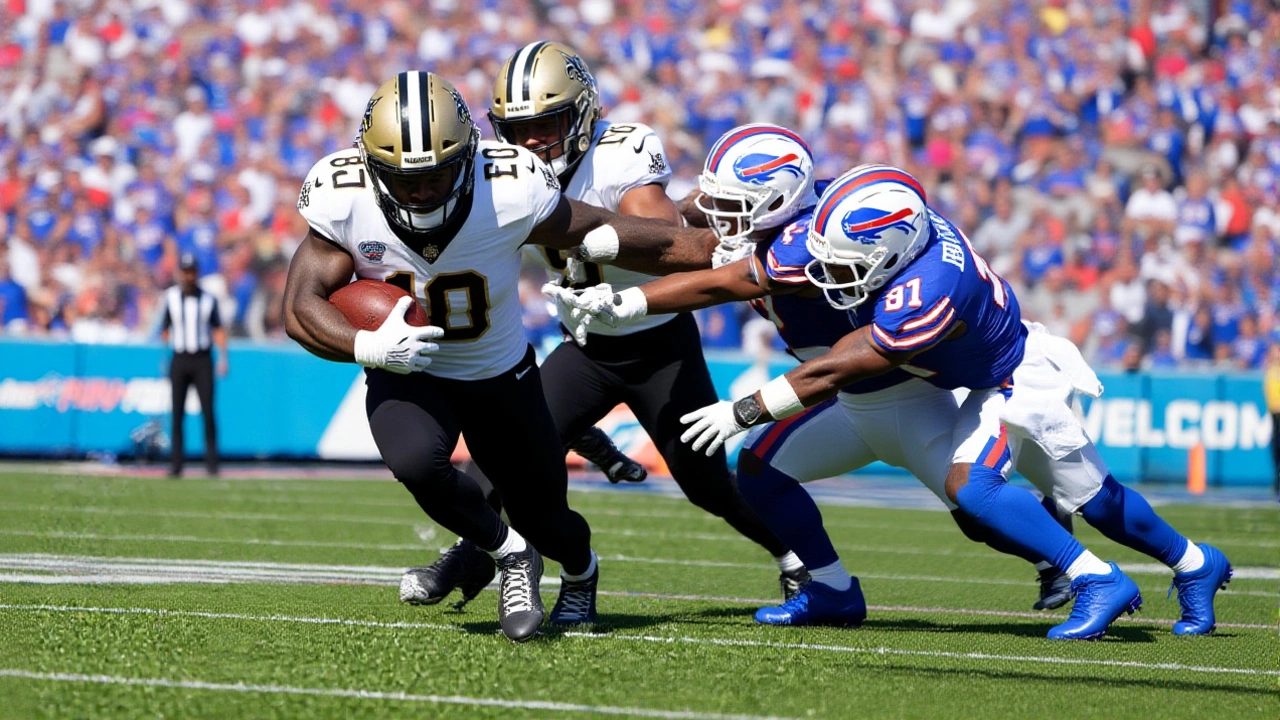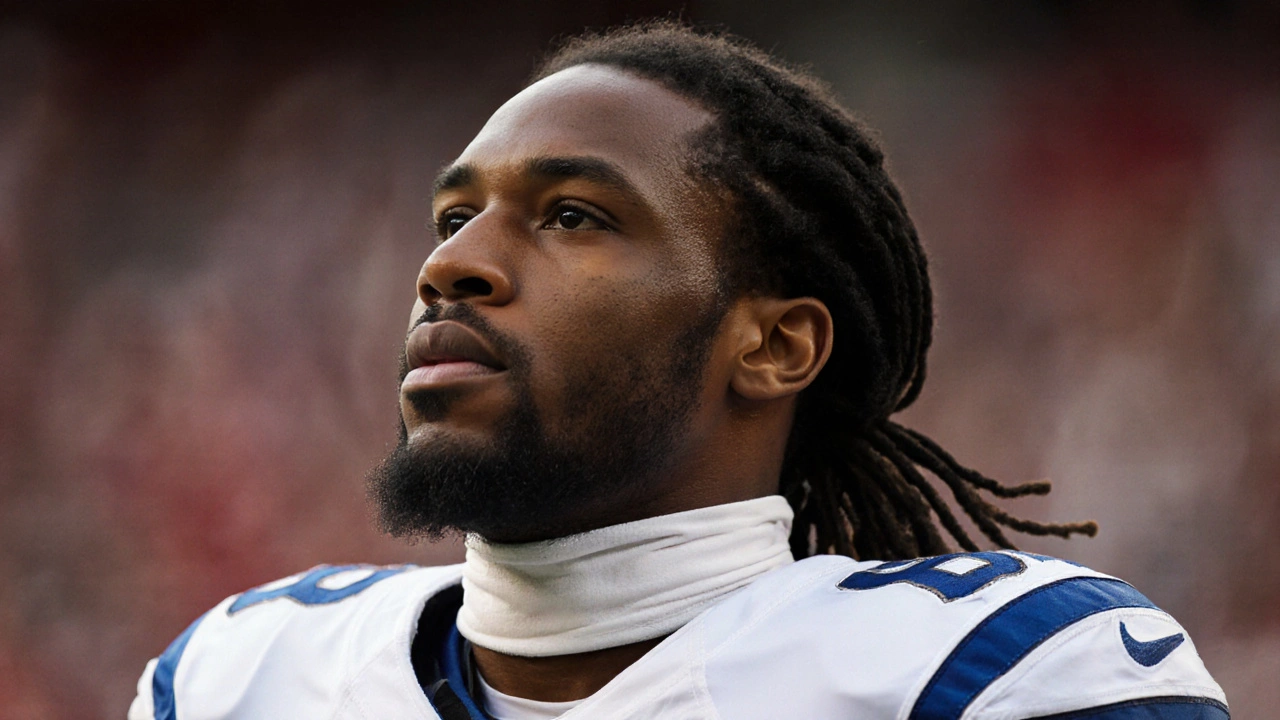One day after being cut by the New Orleans Saints, Brandin Cooks landed squarely in the middle of a playoff push — signing with the Buffalo Bills on November 25, 2025. The move, confirmed by Pro Football Rumors, wasn’t just a roster tweak. It was a statement. With the Bills sitting atop the AFC East at 8-3 and chasing their first Super Bowl appearance since 1995, adding a veteran with zero drops over the past three years was less about filling a gap and more about locking down a critical edge in the final stretch.
Why the Saints Let Go
The New Orleans Saints didn’t release Cooks because he was playing poorly — they released him because they were done trying to win this season. At 2-8, with rookie quarterback Tyler Shough under center and no clear path to contention, the Saints began dismantling their roster. They’d already traded away starting wideout Rashid Shaheed and offensive tackle Trevor Penning at the trade deadline. Cooks, 32, was the next casualty. His 19 receptions for 165 yards in 10 games weren’t eye-popping, but they weren’t the issue. It was the timing. The Saints wanted to evaluate younger players like Devaughn Vele and Mason Tipton. And so, after 12 NFL seasons across five teams, Cooks became the first player in his career to be released rather than traded or let go via free agency.
The Bills’ Calculated Gamble
Enter the Buffalo Bills. General Manager Brandon Beane and Head Coach Sean McDermott didn’t wait. Cooks cleared waivers at 3 p.m. ET on November 25 — and by 4:15 p.m., the Bills announced the signing. Why the urgency? Because they’ve done this before. Last year, they brought in Amari Cooper midseason. Earlier this year, they added Kadarius Toney and Marquez Valdes-Scantling after injuries piled up. Cooks? He’s the ultimate insurance policy. Reliable. Smart. Quietly elite at route-running. And despite his reduced role in New Orleans, he’s had just one drop in the last 36 games. That’s not luck. That’s professionalism.
What This Means for Josh Allen
For Josh Allen, Cooks is the missing piece in the red zone. With Stefon Diggs out for the season and Khalil Herbert struggling to stay healthy, the Bills’ receiving corps had become thin and inconsistent. Cooks doesn’t need to be the No. 1. He doesn’t need 10 targets a game. He just needs to be there — on third-and-long, on slants, on those 12-yard outs that turn into 18-yard gains. He’s the guy Allen can trust when the defense knows the ball’s coming to Diggs or Dawson Knox. And with the Bills facing the Jets, Dolphins, and Patriots in their final five games, every yard matters.
Why the Broncos Were Left Out
Speculation had swirled that the Denver Broncos — desperate for a veteran presence after losing Courtland Sutton — might make a move. But CBS Sports, which listed Buffalo as one of five possible suitors, never mentioned Denver. And once the Bills acted, the door slammed shut. The Broncos were 5-6, fighting for a wild card, but they didn’t have the waiver priority. They didn’t have the roster flexibility. And most importantly, they didn’t move fast enough. Cooks wasn’t a mystery. He was a known commodity. And the Bills knew exactly what they were getting.

What’s Next for Cooks and the Bills
Cooks will wear No. 11 in Buffalo — the same number he wore in Houston and New England. He’ll practice Monday, likely see snaps against the Jets on Thursday Night Football, and could be on the field for his first game with the Bills as early as November 28. His contract is for the remainder of the season with no guaranteed money beyond that — a classic veteran-minimum deal. But don’t mistake that for lack of value. In a league where wide receivers age like milk, Cooks is the whole carton. He’s the guy who still runs precise routes at 32. The guy who doesn’t get hurt. The guy who catches the ball when it’s thrown his way.
Historical Context: The Bills’ Midseason Receiver Strategy
This isn’t the first time Buffalo has pulled off a midseason wideout upgrade. In 2023, they added Amari Cooper from Cleveland, and he delivered 475 yards and five touchdowns in eight games. In 2024, they brought in Marquez Valdes-Scantling after a midseason injury to Diggs. Both moves paid off. Cooks is different — he’s not a deep threat. He’s a possession receiver with elite hands. And in the AFC, where defenses are stacked and every possession counts, that’s gold.
What This Means for the AFC Playoff Picture
The Bills are now the team to beat in the East. With Cooks, they have four reliable targets: Diggs (when healthy), Knox, Cooks, and rookie Rashod Bateman — who’s finally starting to find his rhythm. The Chiefs, Bills’ likely playoff nemesis, now have one more weapon to worry about. And for the rest of the conference? It’s a warning shot. The Bills aren’t just building for the future. They’re going for it now.
Frequently Asked Questions
Why did the Saints release Brandin Cooks instead of trading him?
The Saints were in full rebuild mode with a 2-8 record and no realistic playoff chance. They’d already traded away key players like Rashid Shaheed and Trevor Penning at the deadline. With rookie QB Tyler Shough taking over, New Orleans prioritized evaluating younger talent over acquiring draft picks for a 32-year-old receiver. Releasing Cooks allowed them to clear salary cap space and avoid the risk of a trade falling through.
How does Cooks’ signing affect the Bills’ playoff chances?
It significantly boosts them. With Stefon Diggs sidelined for the season, the Bills’ receiving corps was thin. Cooks adds elite reliability — just one drop in three years — and veteran poise in high-leverage situations. His route-running complements Josh Allen’s arm strength, especially in the red zone. In a tight AFC race, having a dependable target in the final five games could be the difference between a first-round bye and a wild-card slog.
Why wasn’t the Denver Broncos interested in Cooks?
While speculation existed, no credible reports linked the Broncos to Cooks. They lacked waiver priority, had limited roster space, and were focused on developing younger receivers like Jerry Jeudy and KJ Hamler. More importantly, they didn’t move fast enough. The Bills acted immediately after Cooks cleared waivers, leaving no window for other teams — even those with playoff aspirations — to intervene.
Is this a short-term fix or a sign of longer-term planning?
It’s a short-term fix with long-term implications. Cooks’ contract runs only through the 2025 season. But his presence gives the Bills a template: if veteran receivers can be acquired midseason and deliver, they’ll keep doing it. This isn’t about re-signing Cooks — it’s about proving they can win now without overpaying. If he helps them reach the Super Bowl, expect similar moves next year.
How does Cooks compare to other veteran receivers the Bills have signed?
Cooks is more consistent than Amari Cooper was in 2023 — less explosive but far more reliable. He doesn’t have Cooper’s big-play ability, but he’s a better route-runner and has fewer drops. Compared to Marquez Valdes-Scantling, Cooks is a better blocker and more dependable in traffic. He’s the anti-gamble: low risk, high floor. That’s exactly what the Bills need as they chase a championship.



